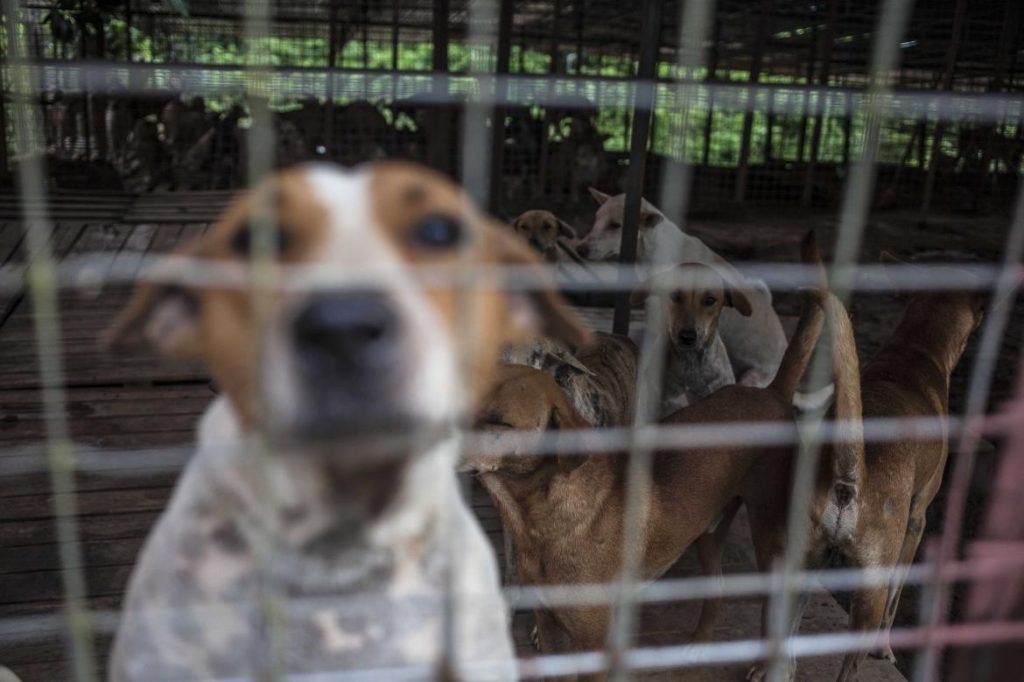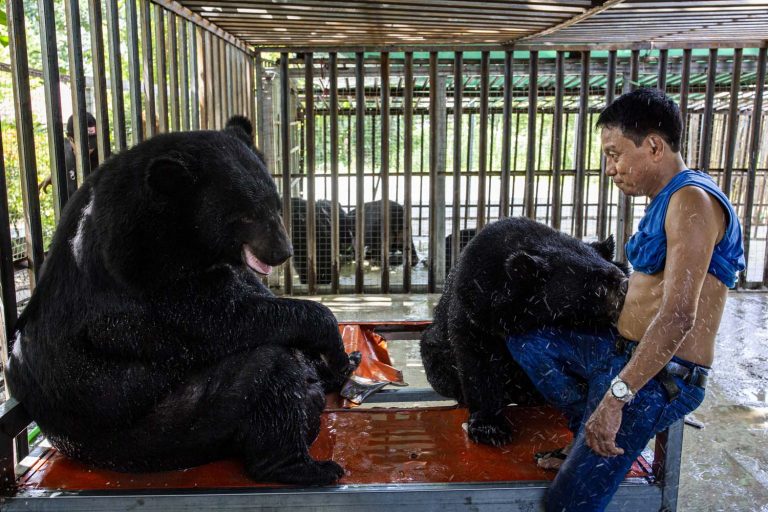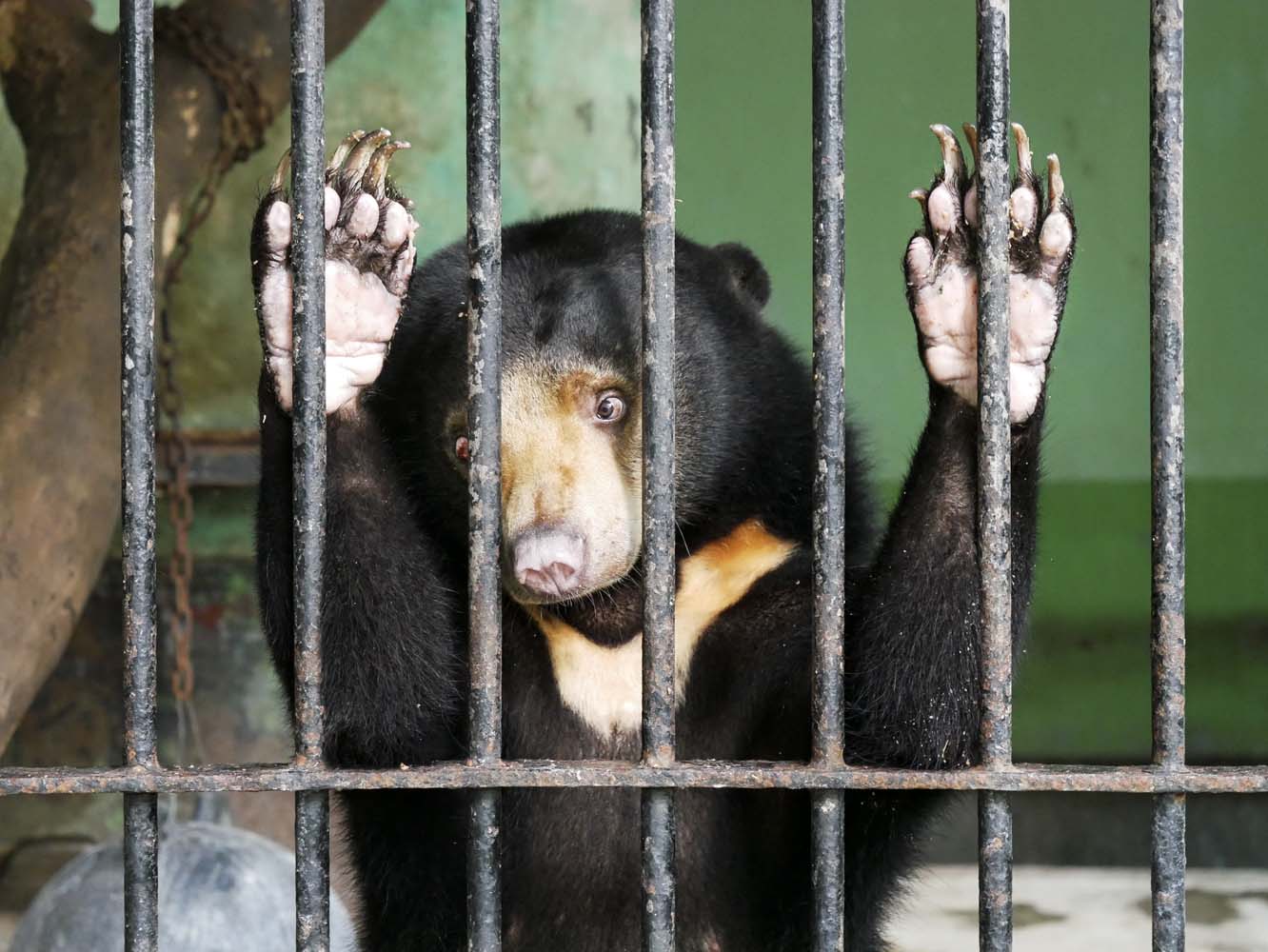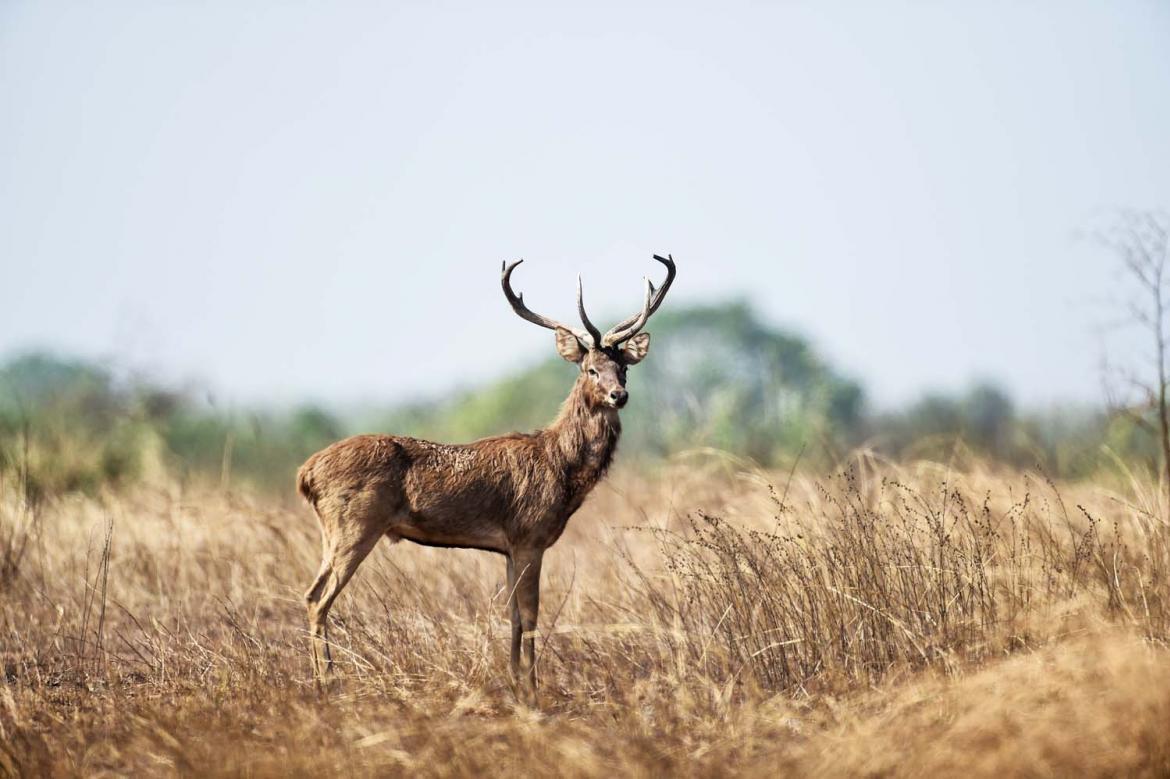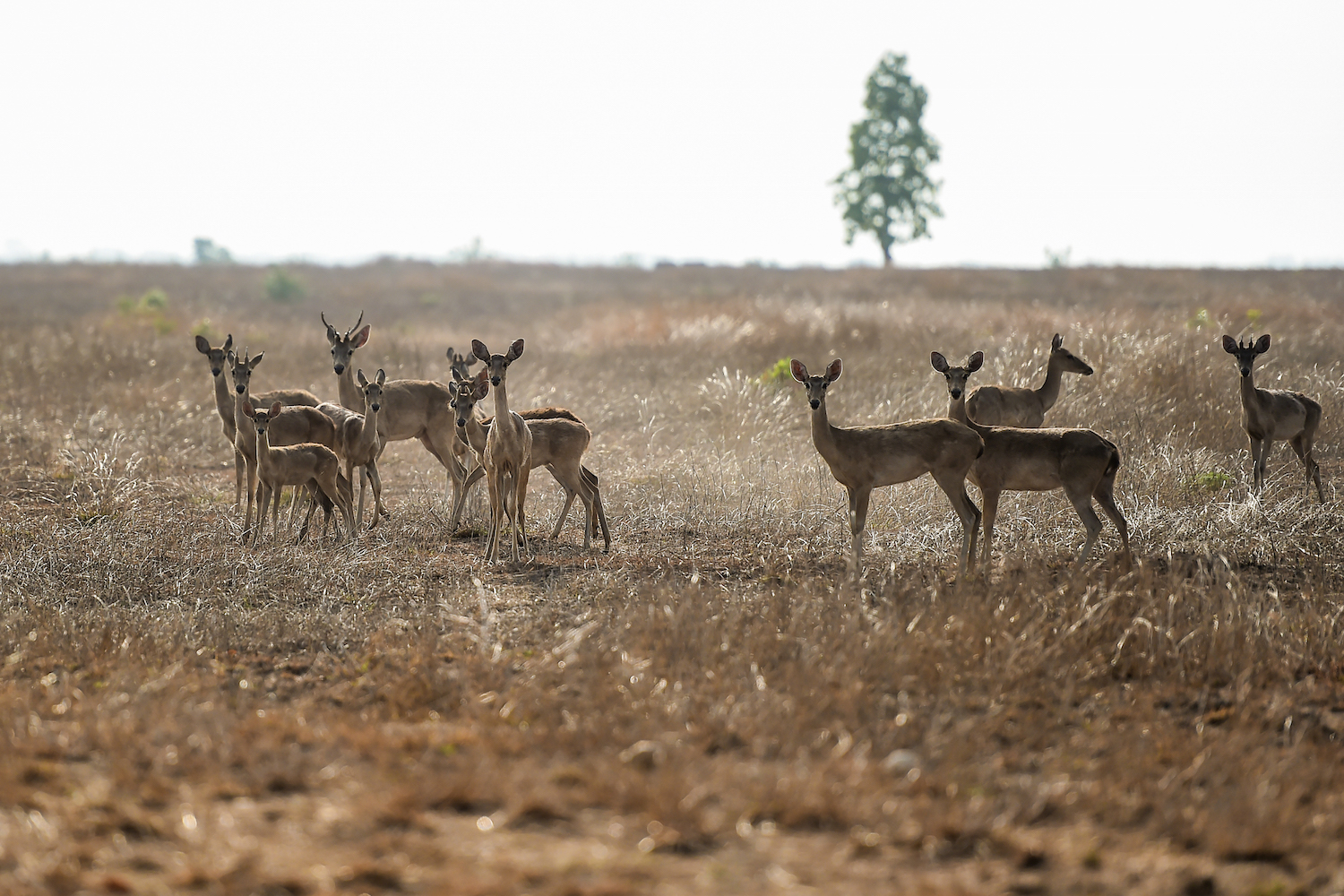A dog-lover in Yangon has opened a refuge for almost 200 canines to take them off the streets – and, potentially, save them from being smuggled abroad.
By HTUN KHAING | FRONTIER
IT WAS a tip-off on social media that convinced Ma Myat Thet Mon to travel from Yangon to Mandalay several years ago. Her mission: to search for a group of almost 200 dogs that she had heard were about to be smuggled over the border into China.
Investigating the situation on the ground, Myat Thet Mon eventually found the dogs crammed into small cages in a small village on the outskirts of Mandalay. She believed the dogs, who were being kept in appalling conditions, were being prepared to be transported to the Lychee and Dog Meat Festival, also known as the Yulin Dog Meat Festival, a highly controversial event held in Yulin, in China’s Guangxi Province, each June.
Activists have called for the events’ cancellation for several years, but without luck. Organisers and sellers argue that the dogs are killed humanely, and that eating a dog is no different to consuming chicken, pork or beer. Meanwhile, the festival’s critics say that the dogs are smuggled from other towns – including those in Myanmar – and transported in small, cramped cages before being brutally killed. Many of the dogs killed at the festival are also believed to be household pets that have been stolen from family homes.
“I didn’t even know about the route of trafficking dogs into China before. I only found out through investigating,” Myat Thet Mon told Frontier.
Support more independent journalism like this. Sign up to be a Frontier member.

Ma Myat Thet Mon tends to dogs at the sanctuary. (Theint Mon Soe aka J | Frontier)
Once she made the discovery, Myat Thet Mon approached the police, but they were reluctant to take any action.
“They didn’t dare to crush the gangs that were trafficking dogs,” she told Frontier.
Myat Thet Mon was persistent though and after she made several complaints to the police they eventually arrested the culprits.
Even though the dogs had been prevented from meeting a potentially grisly end at the festival in China, they were still not free, she said.
“When I asked [the police] to give the dogs to me, they refused, saying that the dogs were an important part of evidence,” she said.

The dog sanctuary in Yangon’s Hlawga Township. (Theint Mon Soe aka J | Frontier)
Myat Thet Mon waited several weeks for the dogs to be released. It was only after she convinced a prominent monk in Mandalay Region to write a letter to the government that the authorities relented and allowed her to take care of the dogs.
“According to the figures, there were about 180 dogs [initially captured], but there were 139 dogs left when they handed them over to me. About 40 dogs died during one or two months,” she said.
Even when authorities agreed to hand over the dogs, the process was complicated – and murky. The handover was conducted at night and authorities warned Myat Thet Mon that it could not go ahead if she was unable to meet them at a certain time of night.
She was able to meet the government’s demands, but then had the issue of deciding what to do with almost 200 dogs. She eventually decided to open a refuge for stray dogs back in Yangon.
It’s difficult to put a number on how many stray dogs there are in Myanmar. A state-run media report published in September 2016, citing figures from as far back as 2003, put the figure at 3.48 million. A recent article by The Guardian said there were an estimated 120,000 stray dogs in Yangon alone.

Ma Myat Thet Mon at the sanctuary. (Theint Mon Soe aka J | Frontier)
In the past, authorities have dealt with stray dogs by poisoning them, but the practice has come in for fierce criticism from animal rights groups. Critics of the programme have urged authorities to instead conduct a “spay-neuter-release” strategy.
Myat Thet Mon initially tried to establish her refuge in Thanlyin Township, but was forced to close it after complaints from neighbours. She now keeps nearly 200 dogs at the centre in Hlegu Township, about 50 kilometres (30 miles) north of downtown Yangon.
Reliant on private donations, Myat Thet Mon said she is facing financial difficulties in providing food and medicine for the dogs, but despite the challenges she is determined to keep the centre open.
“I have no reason why, but I love dogs. I cannot bear to see a dog suffering in pain.”


